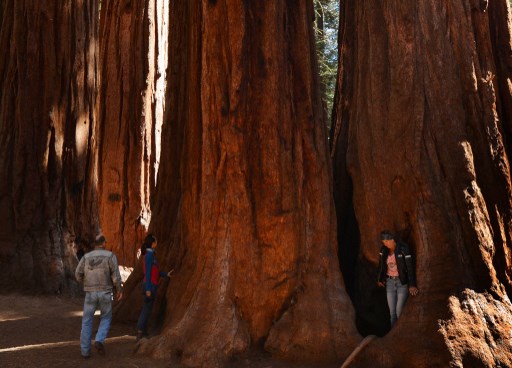
LOS ANGELES, United States (AFP) — The world’s biggest trees were being wrapped in fire-proof blankets Thursday in an effort to protect them from huge blazes tearing through the drought-stricken western United States.
A grove of ancient sequoias, including the 275-foot (83-meter) General Sherman Tree — the largest in the world — were getting aluminum cladding to fend off the flames.
Firefighters were also clearing brush and pre-positioning engines among the 2,000 ancient trees in California’s Sequoia National Park, incident commanders said.
“They are taking extraordinary measures to protect these trees,” said park resource manager Christy Brigham, according to The Mercury News.
“We just really want to do everything we can to protect these 2,000- and 3,000-year-old trees.”
Millions of acres (hundreds of thousands of hectares) of California’s forests have burned in this year’s ferocious fire season.
Scientists say man-made global warming is behind the yearslong drought and rising temperatures that have left the region highly vulnerable to wildfires.
On Thursday, two fires were looming down on the park’s Giant Forest, home to five of the world’s largest trees, including the General Sherman.
Around 500 personnel were engaged in battling the Paradise Fire and the Colony Fire, which together have already consumed 9,365 acres of woodland since they erupted from lightning strikes on September 10.
The enormous trees of the Giant Forest are a huge tourist draw, with visitors travelling from all over the world to marvel at their imposing height and extraordinary girth.
While not the tallest trees — California redwoods can grow to more than 300 feet — the giant sequoias are the largest by volume.
Smaller fires generally do not harm the sequoias, which are protected by a thick bark, and actually help them to reproduce; the heat they generate opens cones to release seeds.
But the larger, hotter blazes that are laying waste to the western United States are dangerous to them because they climb higher up the trunks and into the canopy.
© Agence France-Presse







